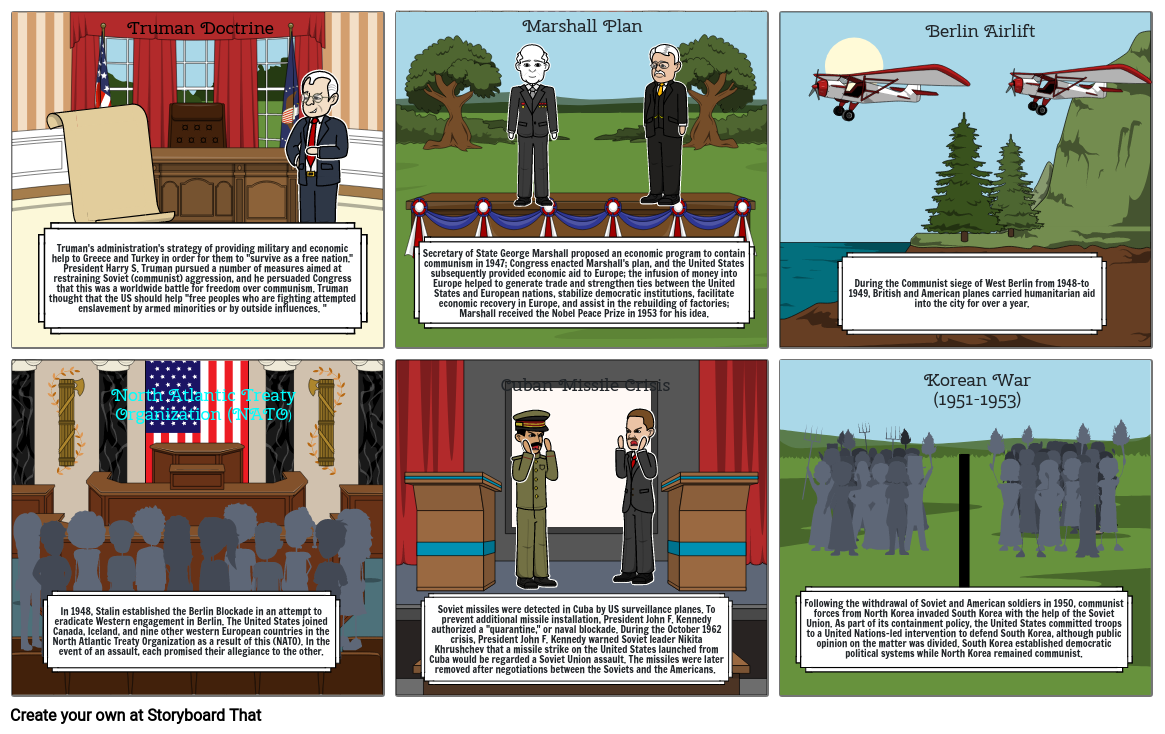History

Storyboard Text
- Truman's administration's strategy of providing military and economic help to Greece and Turkey in order for them to "survive as a free nation." President Harry S. Truman pursued a number of measures aimed at restraining Soviet (communist) aggression, and he persuaded Congress that this was a worldwide battle for freedom over communism. Truman thought that the US should help "free peoples who are fighting attempted enslavement by armed minorities or by outside influences. "
-
- Truman Doctrine
- Secretary of State George Marshall proposed an economic program to contain communism in 1947; Congress enacted Marshall's plan, and the United States subsequently provided economic aid to Europe; the infusion of money into Europe helped to generate trade and strengthen ties between the United States and European nations, stabilize democratic institutions, facilitate economic recovery in Europe, and assist in the rebuilding of factories; Marshall received the Nobel Peace Prize in 1953 for his idea.
- Cuban Missile Crisis
- Marshall Plan
- During the Communist siege of West Berlin from 1948-to 1949, British and American planes carried humanitarian aid into the city for over a year.
- Korean War (1951-1953)
- Berlin Airlift
- In 1948, Stalin established the Berlin Blockade in an attempt to eradicate Western engagement in Berlin. The United States joined Canada, Iceland, and nine other western European countries in the North Atlantic Treaty Organization as a result of this (NATO). In the event of an assault, each promised their allegiance to the other.
- North Atlantic Treaty Organization (NATO)
- Soviet missiles were detected in Cuba by US surveillance planes. To prevent additional missile installation, President John F. Kennedy authorized a "quarantine," or naval blockade. During the October 1962 crisis, President John F. Kennedy warned Soviet leader Nikita Khrushchev that a missile strike on the United States launched from Cuba would be regarded a Soviet Union assault. The missiles were later removed after negotiations between the Soviets and the Americans. 
- Following the withdrawal of Soviet and American soldiers in 1950, communist forces from North Korea invaded South Korea with the help of the Soviet Union. As part of its containment policy, the United States committed troops to a United Nations-led intervention to defend South Korea, although public opinion on the matter was divided. South Korea established democratic political systems while North Korea remained communist.
Over 30 Million Storyboards Created

